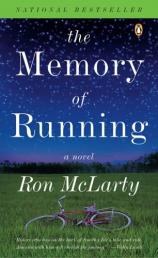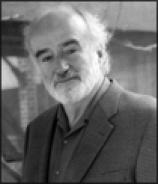Reading Group Guide
Discussion Questions
The Memory of Running

1. Smithy Ide's bicycle odyssey begins on a whim --- something he just falls into --- but it winds up transforming his life. Do you think that people can change their lives profoundly without initially intending to do so? What does the novel seem to be saying about redemption and second chances?
2. As a youth, Smithy was a "running boy" who "made beelines," first on foot and later on a bike. His sister, Bethany, was always running away. And Smithy's cross-country ride is yet another kind of running. What other significance does "running" have in the book?
3. The novel intersperses chapters describing Smithy's parents' death and his ride with chapters about his youth. The present chapters are all consecutive, but his memories of the past jump around somewhat. How do the chapters about the past reflect or relate to the story of Smithy's present?
4. At the beginning of the book, Smithy is an alcoholic, and throughout the book he encounters others whose lives have been overwhelmed by alcohol or drugs. What do you think the author is saying about addiction and the stress and strain of daily life?
5. Smithy reads a number of novels about the American West while on the road. How do these relate to his own story?
6. In the book, Smithy's schizophrenic sister, Bethany, goes through periods of near normalcy, only to disappear or hurt herself when she begins to hear "the voice." She is treated by a succession of psychiatrists, none of whom seem to recognize the nature of her problems or to do her much good. Yet Bethany is always the one who tells Smithy the truth. What do you think the author is saying about madness?
7. Smithy came out of Vietnam with twenty-one bullet wounds, yet his sister's madness and disappearances seem to have wounded him much more seriously. Why do you think this is? Why is Smithy haunted by his sister's apparition?
8. On the road, Smithy encounters many people --- a compassionate priest, an eccentric Greenwich Village artist, a man dying of AIDS, an angry black youth, a Colorado family, a seductive fellow cyclist, a truck driver haunted by the past, and an empathetic Asian mortician, among others. Most of the encounters are marked by kindness, some by violence, and some by both. How is Smithy changed by the people he meets? What do these people tell us about the American character?
9. As a young man, Smithy rejects Norma's schoolgirl crush on him and turns away from her altogether once she's paralyzed. His junior prom is a disaster. The prostitutes he patronizes in Vietnam hate him. And he rebuffs the advances of an attractive young woman he meets on the road. Why does Smithy seem to have so much trouble with women? Do you think his rekindled romance with Norma will work out?
10. Stephen King has called Smithy Ide an "American original" and placed him in the company of Mark Twain's Huckleberry Finn, J. D. Salinger's Holden Caulfield (of The Catcher in the Rye), and Joseph Heller's Yossarian (of Catch-22). Are there other fictional characters you would also compare him to?
The Memory of Running
- Publication Date: December 27, 2005
- Genres: Fiction
- Paperback: 384 pages
- Publisher: Penguin (Non-Classics)
- ISBN-10: 0143036688
- ISBN-13: 9780143036685








